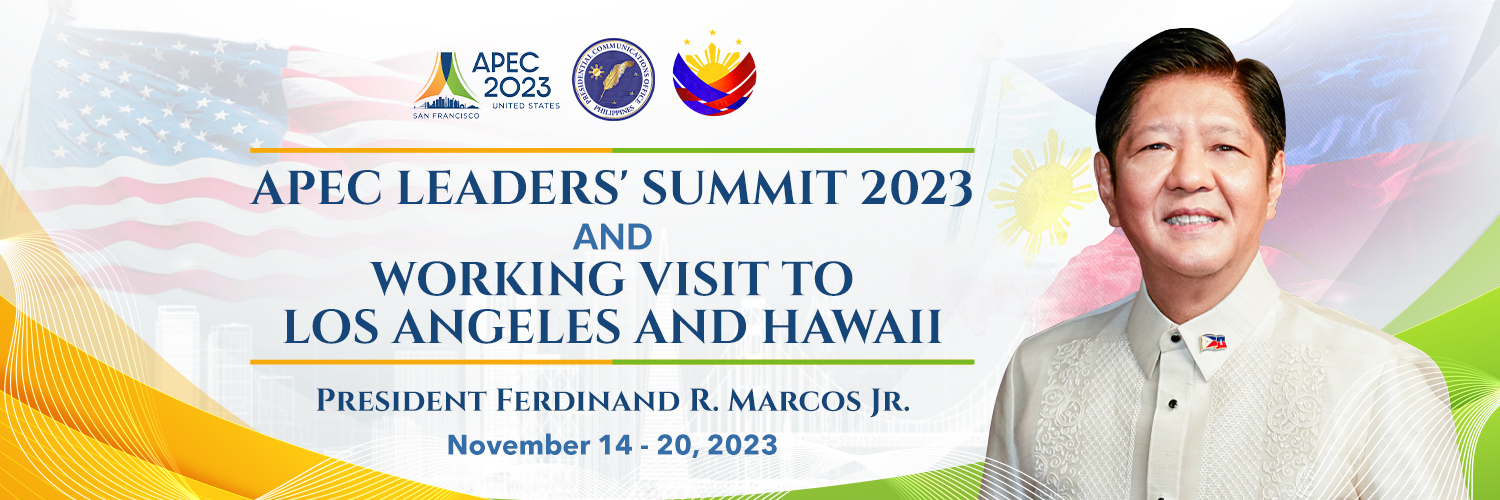
Continuing with his thrust to invite investors to put their businesses in the Philippines, President Ferdinand R. Marcos Jr. highlighted on Wednesday the country’s economic development before the Philippine Economic Briefing (PEB) held in San Francisco, California.
“With a solid reform agenda and unabating growth amid headwinds, the Philippines is ready to take off as a leading investment hub in Asia. A wealth of opportunity awaits you in the Philippines, and we are ready to explore new horizons with your investments in the coming years,” President Marcos told United States businessmen during the PEB.
The President said the event is already the 12th international PEB and the fourth in the US, which has been a platform for the economic team to showcase what makes the Philippines one of the best places to do business.
“By bringing conversations on the country’s macroeconomic fundamentals, policy roadmap, and investment opportunities closer to the international business community, we aim to reintroduce the Philippines and jumpstart meaningful, concrete, and mutually beneficial partnerships that will drive growth in the 21st century economy,” President Marcos said.
“Equally important, this is a deliberate and proactive way for us to generate feedback from our investor stakeholders. We consider these suggestions from our partners as vital in our efforts to shape our policies and programs to support economic transformation and recovery,” he added.
“Over the past year, we embarked on a journey towards economic transformation grounded on sound macroeconomic fundamentals, a favorable business climate, and agile risk management.”
Marcos highlighted before the PEB the country’s economic development, boosting its readiness to become the leading investment hub in Asia.
The country’s economic managers led by Finance Secretary Ben Diokno conducted briefings with prospective investors, pitching the country’s readiness as a leading investment hub. Through International PEBs and Non-Deal Roadshows (NDRs), they were able to show the country’s visibility and expand its investor outreach.
Since 2010, the PEBs in key financial centers abroad have helped generate interest in the Philippines as a sound investment proposition.
The sustained inflows of net Foreign Direct Investment (FDI) from 2005 to 2023 indicate investor confidence in the Philippine economy.
Based on recent PEBs, from the period of September 2022 to July 2023, the Philippine Economic Team has reached out to more than 1,300 members of the business and financial communities in Frankfurt, London, Singapore, Washington, New York, Tokyo, and Toronto.
President Marcos also noted that the Philippines has registered its highest full-year gross domestic product (GDP) growth in 2022 as he announced the 5.9 percent economic growth in the third quarter of 2023, which brought the growth for the first three quarters to 5.5 percent.
Marcos said the country’s economic growth is the fastest growth among major economies in Asia, outpacing Viet Nam, Indonesia, China and Malaysia.
The chief executive also expressed confidence that the Philippines will post a full year economic growth that is close to 6.0 to 7.0 percent target for 2023. He emphasized that major international financial institutions and think tanks, including the World Bank, International Monetary Fund and ASEAn+3 Macroeconomic Research Office agreed and project that the Philippines “will outpace its major regional peers.”
“In fact, Fitch Ratings recently affirmed the stable outlook for the Philippines. This is on the back of strong growth, gradual fiscal consolidation, reductions in government debt-to-GDP ratio, and a comfortable external position supported by sound economic policies and robust economic reforms,” President Marcos said.
“Labor market conditions remain strong. We have been seeing consistently low levels of unemployment and improving quality of employment and underemployment that has been lessened and employment that has been generated. Inflation is slowly coming down. The October 2023 inflation slowed down to 4.9 percent from a frighteningly high 6.1 percent
in September,” he added.
“We are committed to arresting inflation and maintaining overall price stability through supply-side interventions and demand-side management measures.”
President Marcos said the administration has put a favorable business environment at the center of the government’s thrust to promote high-value investments. He said commitments to purposeful reforms are also an enduring feature of Philippine economic policymaking and planning.
The chief executive said that an influx of highly desirable investments in strategic sectors of the Philippine economy is expected with the amendments to the Public Service Act, Foreign Investments Act, Retail Trade Liberalization Act and the Renewable Energy Act IRR, the
President Marcos said the government has also reformed the Philippines’ fiscal incentives structure through the Corporate Recovery and Tax Incentives for Enterprises (CREATE) Act to attract both domestic and global firms to invest in strategically important sectors.
“Investments in rural areas and highly – advanced and technology-enabled projects and activities are given top priority and, consequently, greater and longer incentives,” Marcos said.
“Investments in the digital space are also highly prioritized. Incentives are given to projects covering research and development and those adopting advanced digital production technologies such as, for example, artificial intelligence, additive manufacturing, data analytics, cloud computing, and nanotechnology,” he added.
President Marcos said the government has also reformed the public-private partnerships (PPP) framework to simplify the approval processes, ensure the viability and bankability of PPP projects, cut red tape, and pave the way for quality infrastructure development.
“These reforms support the Philippines’ massive infrastructure drive. We are prioritizing the implementation of 197 infrastructure flagship projects worth around USD 155 billion with a sharp focus on upgrading physical and digital connectivity, water, agriculture, health, transport, and energy,” he said.
Before concluding his speech, President Marcos said the government has identified 80 potential infrastructure projects that are financeable through the country’s Maharlika Investment Fund.

